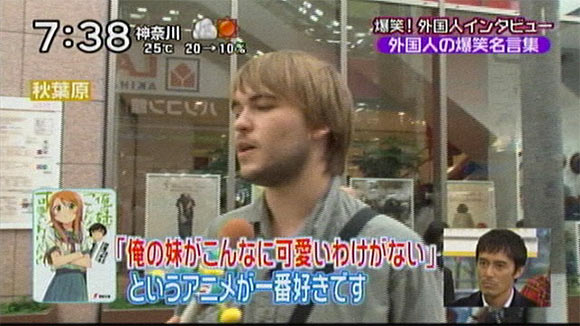I’m often asked how Japanese view the foreigners that live in their midst, disrupting the precious harmony the country is so famous for. It’s quite a complex subject, which reaches deep into Japan’s history and psychology. For the most part Westerners in the Japan of today exist in a special place where the rules don’t apply, at least the same way they do for the natives since we’re never expected to be the same as Japanese. Japanese are usually quite interested in hearing what gaijin think of their country, and there are TV shows in which foreigners from various countries can give their opinions on Japanese society. This can work on a local level as well as national: I once remarked quietly to the employee of a restaurant that the men’s restroom smelled a little of urine, and the next time I went to that restaurant I was surprised to see that the whole restroom had been renovated, likely because I, a foreigner, had been the one to point out the problem. Often the first (and sometimes only) contact a Japanese person will have with a Westerner over the course of their lives is the happy, outgoing 英会話 eikaiwa (English conversation) teacher they had in school, and often the image of Westerners is defined by this first cross-cultural exchange. As a result, the Japanese generally expect us foreigners to be happy people to be around, overly active and expressing our emotions freely…which describes me pretty accurately, actually.

Everyone stop what you’re doing! We need to hear what this gaijin thinks.














